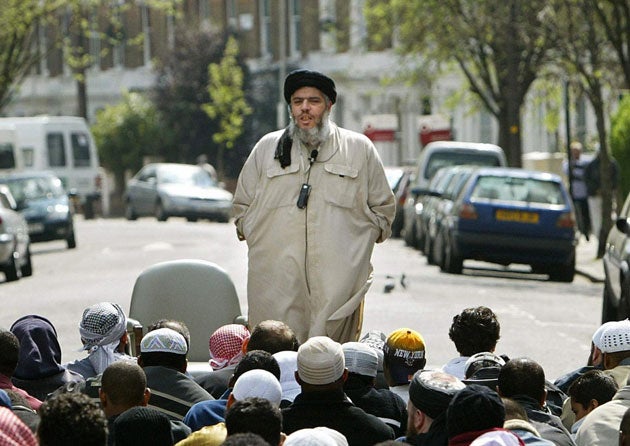Hamza's extradition appeal rejected

Radical Muslim cleric Abu Hamza al-Masri today lost a legal attempt to block his extradition from Britain to the United States, where he is accused of trying to set up an al-Qa'ida camp and faces other terrorism charges.
Hamza, who is serving a seven-year jail term in Britain for inciting his followers to murder non-believers, is accused by U.S. prosecutors of attempting to set up a terrorist training camp in Bly, Oregon, from 1999 to early 2000.
The Egyptian-born cleric, who applauded the Sept. 11 attacks on the United States in 2001, also faces charges that he was involved in plotting the capture of 16 Western hostages in Yemen in 1998. Four of the hostages, three Britons and an Australian, were killed when Yemeni troops stormed the militants' hide-out.
Lawyers for Hamza, a former nightclub bouncer who has a hook in place of a missing hand, told London's High Court the U.S. extradition request should be rejected because it relied on evidence obtained by torture.
His lawyers argued that to send him to the United States would be "unjust and oppressive" because of the length of time since the dates to which the charges relate in 1999 and 2000.
One of Britain's top judges, Igor Judge, dismissed his application to be allowed to challenge his extradition in the highest court, the House of Lords, presided over by the Law Lords.
Judge said the court had considered his application but took the view there was no point of law or of general importance to be addressed. "The 2003 Extradition Act must be applied and our extradition commitments honoured," he said.
Hamza still has the right to renew his application directly to the Law Lords for permission to appeal.
If he is extradited, Hamza faces a total of 11 charges in the United States and, if convicted, a maximum sentence of up to 100 years in prison.
